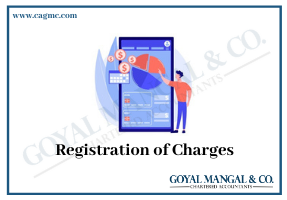Companies issue shares for many purpose like for expansion of their business, for paying off liabilities of company. And all the companies who issue share for raising funds needs to show capital structure and classify the share capital structure in their financial statements. Many people have confusion and not able to differentiate the term authorized…
Table of Content Introduction Types of Compliances for Companies under Companies Act, 2013 Advantages of Post Incorporation compliances of a Company Mandatory post incorporation compliances under Companies Act, 2013 Annual Compliances under Companies Act, 2013 Conclusion Introduction Simply incorporating a company and starting a business is not sufficient. Obtaining an incorporation certificate is just the…
Trademarks confer a right to use specific shapes, symbols, colors on goods owned by the business. The process of trademark registration requires careful planning and execution. Trademark registration in India requires approval from the registrar of trademarks. However, in certain cases, the registrar objects to the grant of the trademark. This may lead to delays…
Introduction- As per Companies Act 2013, Sec 2(34) director means a director appointed to the board of company. Thus he is a person appointed to perform the duties and function of the company in accordance with the provisions of Companies Act 2013. As per companies act there is a limit to minimum number of directors…
Introduction Stamp Duty is a tax levied on sale of property purchases or documents by the state government. It varies from state to state. The value of stamp duty to be charged depends on the value of instrument or property on which it has been imposed. Earlier the stamp duty was to be charged only…
Introduction– A board report is an important document of the company which is used to communicate the shareholders with the position, performance, major changes in policies, documents, plans, future goals, expansions if any, etc. This report is attached with the financial statements and is laid before the general meeting. A new amendment was inserted in…
Who are Non-executive Director and Independent Director? Let us first understand the term Non-executive Director and Independent Director. Non-executive Director- A Non-executive director is the one who doesn’t participate in day to day functioning of the company but is involved in policy making and planning process. Though he is a part of the management but…
A charge is a right created by any person including a company referred to as “the borrower” on its assets and properties, present and future, in favour of a financial institution or a bank, referred to as “the lender”, which has agreed to extend financial assistance. Table of Content Introduction Definition of Charge as per…
The Managing Director of a company is the most important working director, and is in charge of the way the company is managed. They are responsible for the daily operations of a company, organization, or corporate division. Managing directors have the highest rank within the company and have the authority to fire the executive director….
The process of converting OPC into private or public/ Conversion of private into OPC has been simplified. This can be done by filing eForm INC-6 on the MCA Portal. eForm INC-6 is required to be filed pursuant to the provisions of Section 18 of the Companies Act, 2013. Table of Content Purpose of filing eForm…









